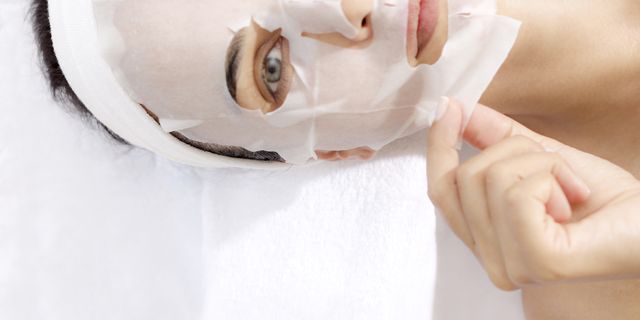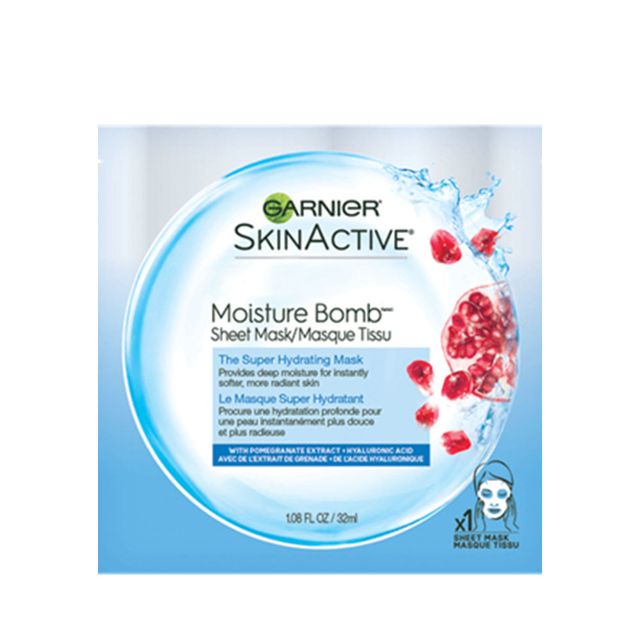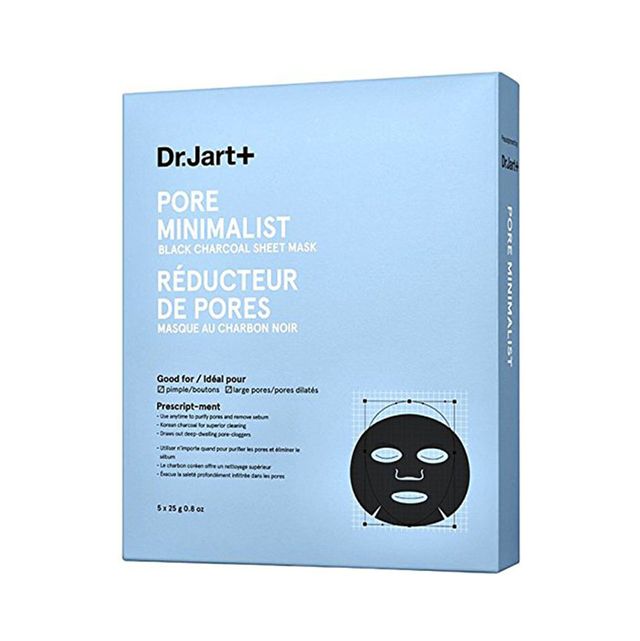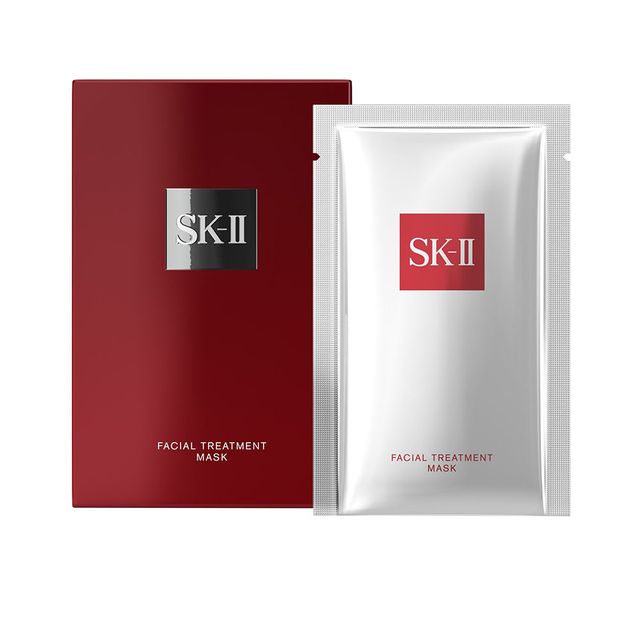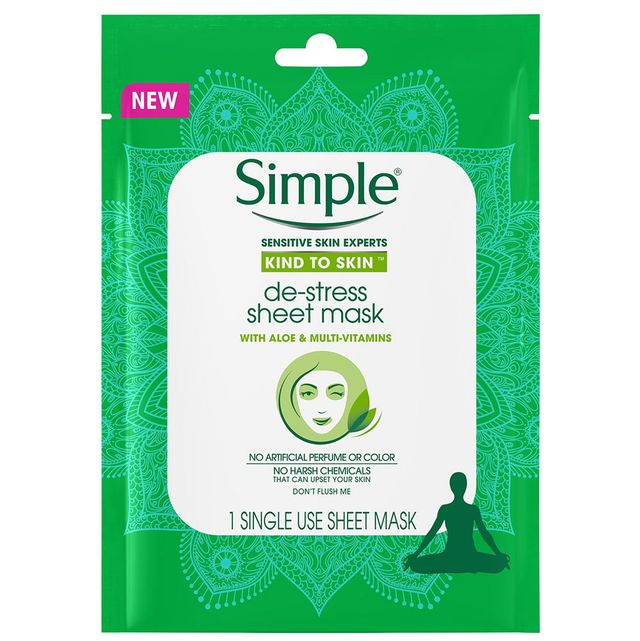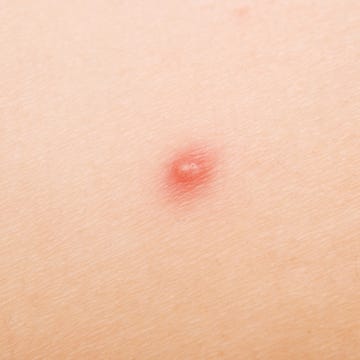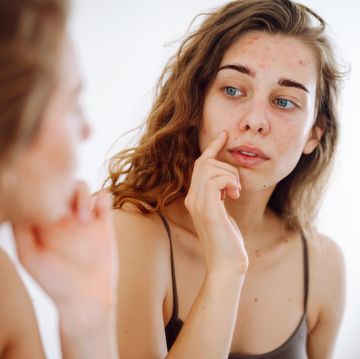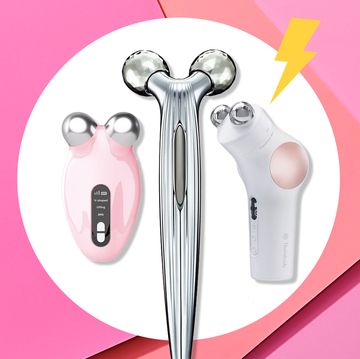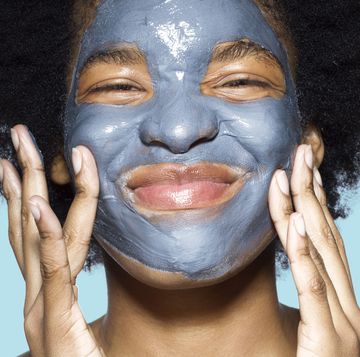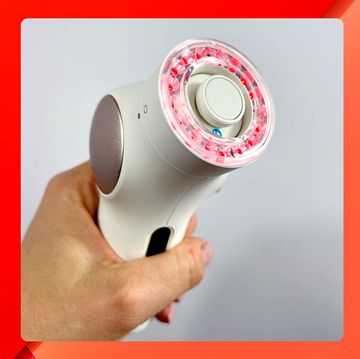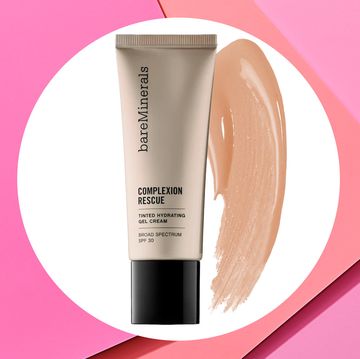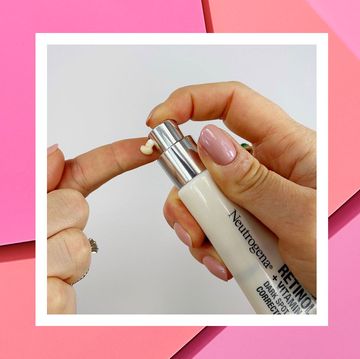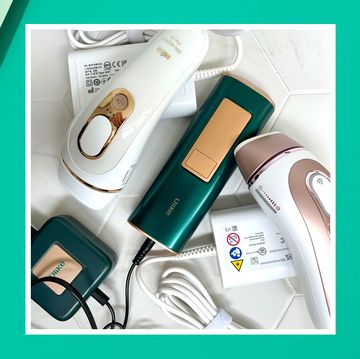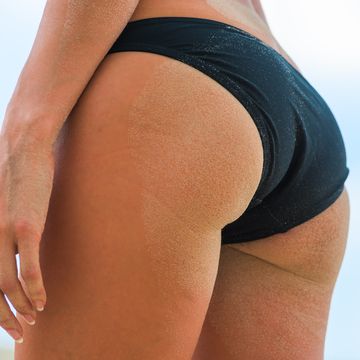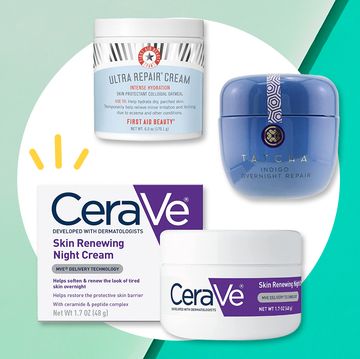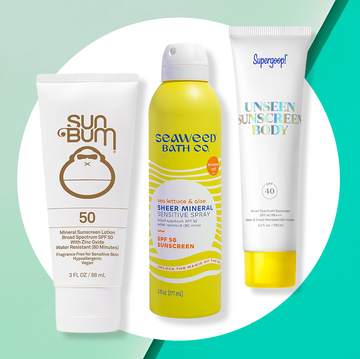Everybody and their mom is posting sheet mask selfies on Instagram these days—including some familiar faces who are clearly into #SelfCareSunday.
But seriously, does this stuff even work beyond making for a fun 'gram? Debbie Palmer, D.O., a New York-based dermatologist, and Dendy Engelman, M.D., a New York City-based dermatologist, explain what you need to know before you shell out any cash on them.
Sheet masks shouldn't replace traditional masks.
First, a primer on what sheet masks are exactly (beyond, well, a skincare treatment that comes in sheet form): a packaged piece of face-shaped fabric that sits in a concentrated version of one or more active ingredients until you're ready to use it. “Sheet masks have a higher concentration of actives than a topical product, and depending on the material, the sheet can help deliver products deeper into the skin,” says Engelman.
One thing to be aware of: They’re called masks because of their resemblance to the Phantom of the Opera's go-to accessory, not because they function the same way as other kinds of face masks. The cotton sheets are doused in a serum-based formula and then placed on top of the skin, so they won’t work as well for tasks like exfoliating or cleansing deeply.
However, since most are packed full of vitamins, amino acids, and minerals, they do come with their own set of benefits (more on that in a sec). They also won’t dry out the skin like a clay mask formula often does.
They're best at hydrating.
These liquid-based formulas come in many variations that claim different results—lifting, preventing acne, hiding fine lines—but Palmer says you should primarily count on them for hydration.
“When you put a mask on your skin, you can increase the water content,” she says. Basically, the paper in the mask seals the ingredients to prevent them from evaporating, letting them better penetrate into the skin.
The theory is that sheet masks “use the material to trap active ingredients on the skin, forcing it to lock in the moisture and receive all the benefits,” explains Engelman. (Granted, Palmer says it's not clear if sheet masks are better than serums at this.)
Hyaluronic acid, ceramides, and/or antioxidants are the three ingredients that can be found in most sheet masks. Hyaluronic acid works as a hydrator, creating a barrier for the skin, locking in moisture, and improving texture. “Skin loses water and moisture as we age, so this ingredient will help restore hydration,” says Engelman.
Ceramides work to block out the environmental factors that can disrupt the lipid layer of skin, which locks in moisture and acts as a barrier against skin hazmat like pollution and bacteria. “If this first line of defense is compromised, the skin is at risk of rapid aging,” says Engelman. Ceramides help restore the skin’s barrier by holding those essential lipid layer cells in place, resulting in smoother, plumper, and more moisturized skin.
Antioxidants, meanwhile, help protect skin against free radicals in the air that can cause cell damage, resulting in aging over time.
...But they're not always great for people with acne.
The occlusion (sealing of the skin) that happens with sheet masks can increase the temperature of your skin, from an average of 89.6 to 98.6 degrees. That's not ideal if you are prone to breakouts. “Increasing the temperature can increase the bacteria count on the surface of the skin, causing acne,” says Palmer. Certain ingredients in some masks (like eggs or coconut oil) might also clog your pores.
If you have acne-prone or oily skin, Palmer suggests testing the mask on a section of your face, preferably the side of your cheek. Check for new blemishes the next day before proceeding with a full mask. And look for ingredients that are better suited for your skin's needs, like redness-reducing aloe vera or oil-absorbing charcoal.
You can expect to get a little messy.
The masks are one-size-fits-all, but not every face is the same size or even the same shape—making fit potentially tricky.
To cover all corners of the face, Palmer suggests beginning at one end: “Start at the forehead, and line up with the eyes so you don’t get an air pocket.”
Pat the mask onto the cheeks, moving down toward the chin. And since sheet masks don't always stay on if you're sitting upright (unless you splurged for the kind with loops that go over your ears), think of those 10 to 30 minutes you'll be wearing the mask as the perfect time to Netflix and chill.
If you're wondering whether sheet masks are sanitary, don't fret. Despite some scary reports in 2016 that some sheet masks are infested with bacteria, most masks are totally hygienic because they're vacuum-sealed. And their single-serve packaging makes them super-convenient. Unlike traditional masks that require you to wash your face after using, you can leave the sheet mask's serum on as your moisturizer for the day—no rinsing required.
Unless you're made of $$$, you probably won't want to use them every day.
“These masks are more of a luxury, used for special events or flying when you have a lot of dryness," says Palmer. "Used every day, they can get expensive—over $90 a week.” Prices range from a little less than $3 per mask to $20 a mask.
That said, a good time to use a sheet mask is when you want to hydrate or brighten your skin before an event (since the benefits won't last more than a day anyway).
Stick with a regular face mask when you want more exfoliating or clarifying benefits. “A clay or chemical peel is more ideal for when you want to remove buildup of dry skin, but prolonged exposure will dry out the skin,” says Engelman.
Daley Quinn is a Connecticut-born, Texas-bred beauty and wellness writer living in New York City. Her work has appeared in Family Circle magazine, WWD.com, TheCut.com, TheFinancialDiet.com, and San Antonio magazine. In her off hours, you can find Daley stalking her queen, Vanessa Carlton. You can find more of her work on her website or check out her blog, The Daley Dose.
